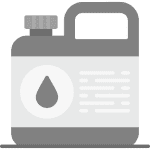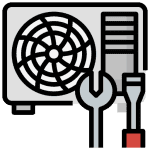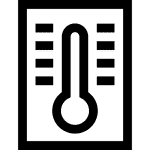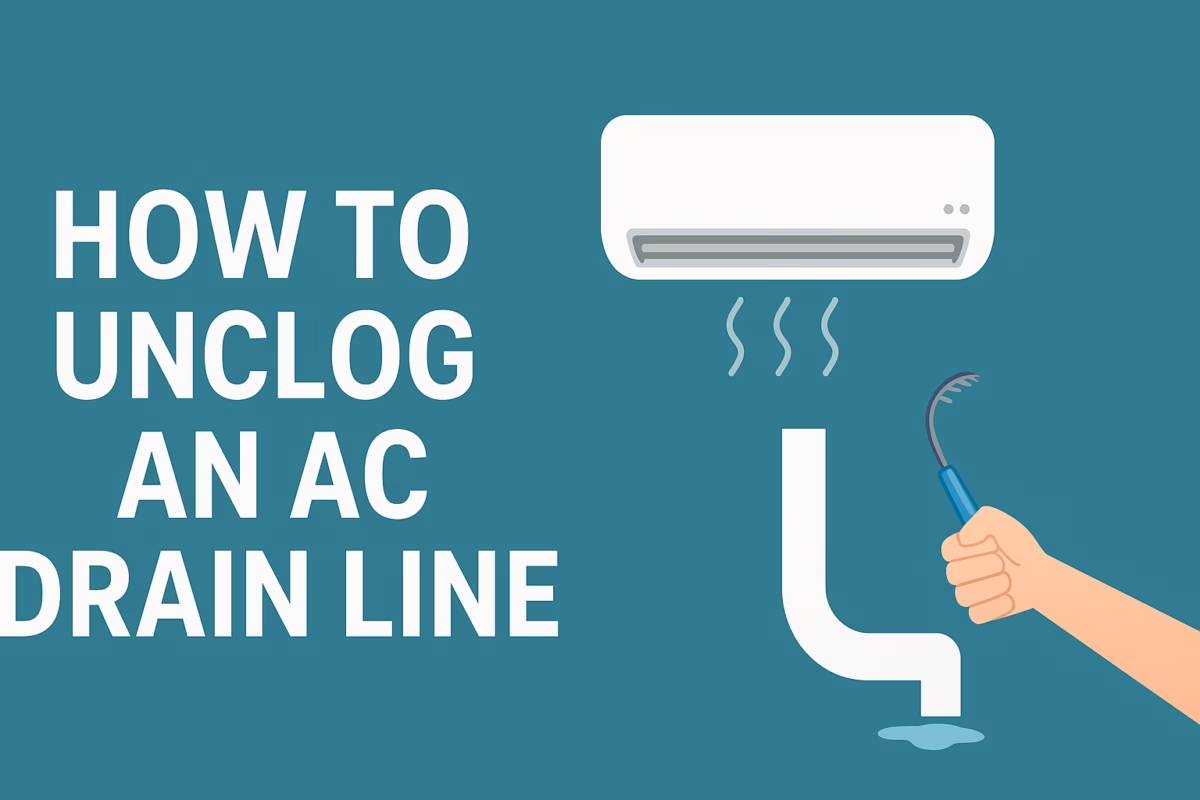Discover answers to the 50 most common HVAC questions covering topics like HVAC system efficiency, maintenance schedules, compressor function, and more. Whether you’re troubleshooting or planning to replace your system, get expert advice on optimizing performance, reducing energy costs, and maintaining air quality. Learn about refrigerant pressures, SEER ratings, duct cleaning, and when to replace your HVAC system for maximum efficiency
1. What is HVAC?
HVAC stands for Heating, Ventilation, and Air Conditioning. It’s a system that provides heating and cooling to residential and commercial buildings.
Keywords: HVAC system, air conditioning
2. How does an HVAC system work?
An HVAC system regulates indoor temperature, humidity, and air quality by moving air in and out of the building.
Keywords: how HVAC works, HVAC function
3. What are the different types of HVAC systems?
There are four main types: split systems, hybrid systems, duct-free systems, and packaged heating and air systems.
Keywords: types of HVAC systems, split system HVAC

4. How often should you service your HVAC?
Service your HVAC system every 6-12 months to ensure optimal performance.
Keywords: HVAC service frequency, HVAC maintenance schedule
5. What is a heat pump?
A heat pump transfers heat from one location to another, providing both heating and cooling.
Keywords: heat pump, heat pump system
6. What is SEER in HVAC?
SEER (Seasonal Energy Efficiency Ratio) measures air conditioning and heat pump cooling efficiency.
Keywords: SEER rating, HVAC efficiency
7. What is the ideal SEER rating?
An ideal SEER rating for residential systems is between 14 and 16 for energy efficiency.
Keywords: ideal SEER rating, energy-efficient HVAC
8. What is refrigerant?
Refrigerant is a fluid used in HVAC systems to absorb and release heat.
Keywords: HVAC refrigerant, types of refrigerant
9. How to recharge HVAC refrigerant?
Only certified technicians should recharge HVAC refrigerant following the manufacturer’s guidelines.
Keywords: recharge refrigerant, HVAC refrigerant refill
10. How often should HVAC filters be changed?
Change HVAC filters every 1-3 months depending on usage and air quality.
Keywords: HVAC filter replacement, change air filters
11. What are the symptoms of low refrigerant in an HVAC system?
Symptoms include reduced cooling, higher energy bills, and ice forming on refrigerant lines.
Keywords: low refrigerant signs, HVAC low refrigerant
12. How does a thermostat work in HVAC?
A thermostat monitors and regulates your HVAC system to maintain the desired temperature.
Keywords: thermostat function, how thermostats work
13. What is the difference between central air and ductless systems?
Central air uses ducts to distribute air; ductless systems use individual units without ducts.
Keywords: central air vs ductless, ductless HVAC
14. How can I improve my HVAC efficiency?
Regular maintenance, cleaning filters, and sealing ducts can improve HVAC efficiency.
Keywords: improve HVAC efficiency, energy-efficient HVAC tips
15. What is an HVAC zoning system?
An HVAC zoning system allows for controlling the temperature in different areas (zones) of a building.
Keywords: HVAC zoning, zoned HVAC system
16. How long does an HVAC system last?
Most HVAC systems last 15-20 years with proper maintenance.
Keywords: HVAC lifespan, HVAC system durability
17. What is a smart thermostat?
A smart thermostat connects to Wi-Fi, allowing you to control your HVAC system remotely.
Keywords: smart thermostat, Wi-Fi thermostat
18. How much does it cost to replace an HVAC system?
The cost to replace an HVAC system ranges from $3,000 to $7,000, depending on size and type.
Keywords: HVAC replacement cost, HVAC installation cost
19. What is the function of HVAC ducts?
Ducts distribute heated or cooled air throughout your home in a forced-air system.
Keywords: HVAC ducts, duct system function
20. How to test for HVAC refrigerant leaks?
Technicians use leak detectors or UV dye to identify refrigerant leaks in HVAC systems.
Keywords: test refrigerant leaks, HVAC leak detection
21. What are the signs your HVAC system needs repair?
Signs include unusual noises, uneven temperatures, or an increase in energy bills.
Keywords: HVAC repair signs, HVAC troubleshooting
22. Can I install my own HVAC system?
DIY installation is not recommended for HVAC systems due to complexity and safety concerns.
Keywords: install HVAC yourself, DIY HVAC installation
23. What is duct cleaning and is it necessary?
Duct cleaning removes dust and debris from air ducts, improving air quality. It’s recommended every 3-5 years.
Keywords: duct cleaning, air duct cleaning necessity
24. How does air quality affect HVAC performance?
Poor air quality can clog filters and reduce HVAC efficiency.
Keywords: air quality and HVAC, HVAC air quality
25. How to properly size an HVAC system?
Proper sizing depends on square footage, climate, and insulation.
Keywords: HVAC system sizing, size HVAC for home
26. What is a mini-split HVAC system?
Mini-split systems are ductless and consist of an outdoor compressor and indoor air-handling units.
Keywords: mini-split HVAC, ductless mini-split
27. How to balance HVAC airflow?
Airflow can be balanced by adjusting dampers and ensuring proper vent placement.
Keywords: balance HVAC airflow, HVAC airflow tips
28. What are MERV ratings for HVAC filters?
MERV (Minimum Efficiency Reporting Value) ratings measure how effectively HVAC filters trap particles.
Keywords: MERV rating, HVAC filter ratings
29. Why does my HVAC system smell bad?
Bad odors could indicate mold, bacteria, or a refrigerant leak in your system.
Keywords: HVAC smells, bad odor HVAC
30. What is an HVAC condenser?
An HVAC condenser is part of the outdoor unit responsible for releasing heat.
Keywords: HVAC condenser, what does a condenser do
31. How to winterize an HVAC system?
Winterize by covering outdoor units, cleaning filters, and inspecting ducts.
Keywords: winterize HVAC, prepare HVAC for winter
32. What is a variable-speed HVAC system?
A variable-speed system adjusts airflow to meet heating or cooling demands more efficiently.
Keywords: variable-speed HVAC, energy-efficient HVAC
33. What is geothermal HVAC?
Geothermal HVAC systems use underground heat to regulate indoor temperatures.
Keywords: geothermal HVAC, geothermal heating
34. How to reduce HVAC noise?
Regular maintenance, soundproofing ducts, and placing the system in an appropriate location reduce noise.
Keywords: reduce HVAC noise, HVAC system noise solutions
35. How does HVAC zoning work?
Zoning uses dampers to control airflow to different areas or zones in a home.
Keywords: HVAC zoning work, zone control HVAC
36. Why does my HVAC system freeze up?
Freezing can occur due to low refrigerant levels, dirty filters, or blocked airflow.
Keywords: HVAC freezing, frozen HVAC unit
37. How to clean HVAC coils?
Clean the coils using a soft brush, vacuum, or coil cleaner to improve efficiency.
Keywords: clean HVAC coils, coil cleaning tips
38. How often should you clean HVAC coils?
Clean HVAC coils at least once a year, preferably during annual maintenance.
Keywords: HVAC coil cleaning frequency, clean AC coils
39. What is a two-stage HVAC system?
A two-stage system operates at two different capacities for more precise temperature control.
Keywords: two-stage HVAC, HVAC stages
40. How does humidity affect HVAC?
High humidity can strain HVAC systems, requiring dehumidification to maintain comfort.
Keywords: humidity and HVAC, HVAC humidity control
41. How do I know if my HVAC is energy efficient?
Check the SEER rating, energy bills, and overall performance for efficiency.
Keywords: energy-efficient HVAC, check HVAC efficiency
42. What is an air handler?
An air handler circulates air throughout your HVAC system and is part of the indoor unit.
Keywords: air handler, HVAC air handler function
43. How does duct sealing improve HVAC efficiency?
Duct sealing prevents air leaks, improving the system’s overall efficiency.
Keywords: duct sealing, improve HVAC efficiency
44. What is a CFM in HVAC?
CFM (Cubic Feet per Minute) measures the volume of air flow delivered by an HVAC system.
Keywords: CFM HVAC, what is CFM
45. How to choose the right HVAC contractor?
Look for certifications, experience, and reviews when choosing an HVAC contractor.
Keywords: choose HVAC contractor, HVAC contractor tips
46. What is an HVAC evaporator coil?
An evaporator coil absorbs heat and cools air inside the home.
Keywords: HVAC evaporator coil, evaporator coil function
47. What is a heat exchanger in HVAC?
A heat exchanger transfers heat between two or more fluids in HVAC systems.
Keywords: HVAC heat exchanger, what does a heat exchanger do
48. How to prevent HVAC carbon monoxide leaks?
Install carbon monoxide detectors, check heat exchangers, and schedule regular maintenance.
Keywords: HVAC carbon monoxide, prevent CO leaks HVAC
49. What is an HVAC compressor?
The HVAC compressor is a key component that compresses refrigerant and circulates it through the system to release or absorb heat.
Keywords: HVAC compressor, compressor function in HVAC
50. How often should an HVAC system be replaced?
An HVAC system typically needs replacement every 15-20 years, depending on usage, maintenance, and efficiency.


 Condenser Fan Motors
Condenser Fan Motors Blower Motor Wheels
Blower Motor Wheels Dryer Filters and Stainer Filters
Dryer Filters and Stainer Filters
 Copper Coils
Copper Coils Contactor
Contactor
 Compressor Oil
Compressor Oil

 Indoor/Outdoor Motors
Indoor/Outdoor Motors Out Door Fan Blades
Out Door Fan Blades Heating Elements
Heating Elements


 Vacuum Machine Parts
Vacuum Machine Parts Vacuum Pumps
Vacuum Pumps Thermostat
Thermostat
 Refrigerator Compressor
Refrigerator Compressor Split AC
Split AC





